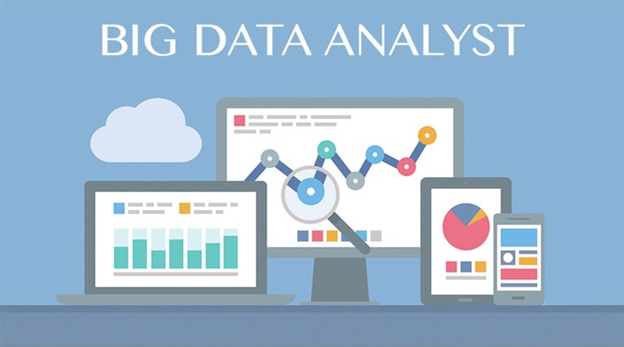Looking around it is evident that many leading organizations across different domains are doubling down on advancing analytics and automation, to fetch and drive maximum benefits from their technological investments. As per a recent study by Analytics India Magazine, roles of a professional programmer or a data analyst are highly sought-after in the current job market and the professionals are earning almost 26% higher than an average software engineer in India, which remarkably shows the promising future it pertains.
Data is everywhere and digital data specifically has a larger impact and is growing at a faster rate. Forbes, in an article, mentioned that “Data is growing faster than ever before and by the year 2020, new information of 1.7 megabytes will be created for every human being for every second on the planet.” At the given progressive pace and immense impact, the one who is planning to have a future in the field of Analytics can be sure of handsome monetary benefits and great learning.
Let’s look at some of the key skills needed to be a big data analyst –

Programming: You can’t get away from coding here! although you need not be an expert programmer. Traditional practices followed by data analysts gave the leeway to programming but with big data analysis being well-acquainted with programming essentials is a must. Dealing with huge and complex unstructured datasets, the analyst needs to get into a lot of customization calls on a routine basis. Programming languages known to the analyst should be Python, Java, C++, R, Ruby, Weka, Julia, Scala, SQL, SAS, SPSS, Hive, MATLAB. So, before you plan to step into the field, let programming knowledge not be a hurdle to especially starting with one must try and be well-versed with R, Python, and Java. The more you know you are to the language, the easier it will be for you to dig deeper and extract the data.
Data Warehousing: Data Warehousing deals with constructing and usage of data, integrating data from numerous heterogeneous sources that aid in analytical reporting and decision making. Big data analysts must have the needful expertise with relational and non -relational database systems. Some examples of these databases are Mysql, Oracle, DB2, NoSql: Hbase, HDFS, MongoDB, CouchDB, Cassandra, Teradata, etc.
Quantitative Aptitude and Statistics: Be sure you are good with numbers! Along with technological requirements, being a data analyst you must be really good with statistics and linear algebra. Statistics forms the base when you plan to enter in the field of data science and being clear with the core concepts in statistics like probability distribution, random variables, hypothesis testing you can be sure to place the right stepping stone.
Computational frameworks: Knowledge and familiarity with computational frameworks like Apache Spark, Apache Storm, Apache Samza, Apache Flink and the classic MapReduce and Hadoop are needed when you plan to enter in the field. These advanced technological processes help in giving the right edge to your career while you plan to make a career in Big Data processing.
Business Knowledge: A complete knowledge of the domain, one is working for is a must to be a successful data analyst. We can only aim the right target, when we know where to hit, in fact, our data representations can be precise and correct only when we are aligned with the nature and objective of the business we are working for.
Machine Learning: Having a good hold on machine learning can prove to be beneficial managing complex data structures and learning patterns.
These are some of the important skills needed to make a rewarding career in Big data Analysis. So, if you sincerely plan to have a growth-oriented and well-fetching career in data analysis, then going for Big Data Analytics Course or PGDM in Big data can help you gain the required expertise in the field. While making a choice for the course, make sure to choose a reputed institution or college.
